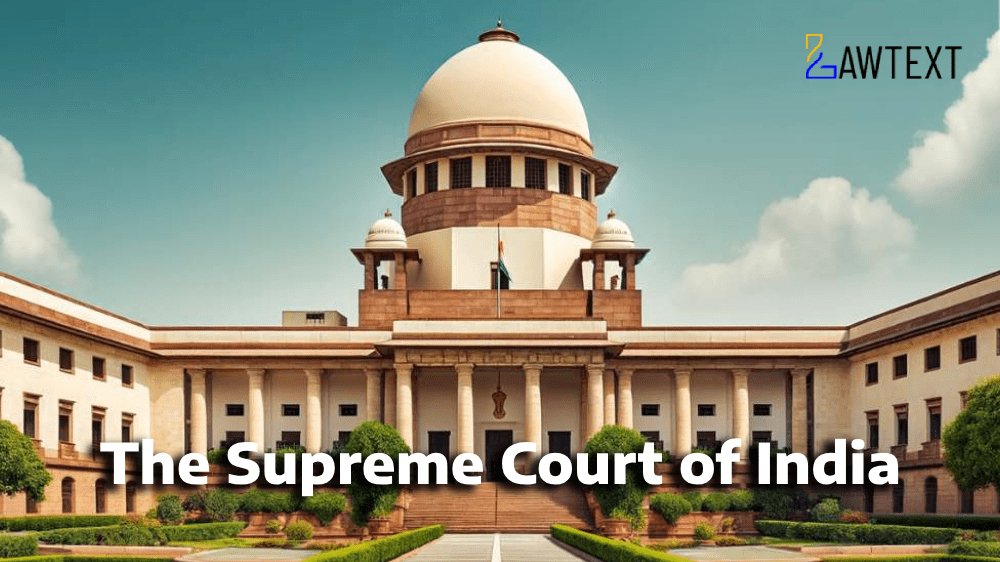CASE NOTE & SUMMARY
The Supreme Court disallowed the appointment of an arbitrator under Section 11(6) of the Arbitration and Conciliation Act, 1996, holding that disputes concerning non-payment of wages and termination of employment fall under the exclusive jurisdiction of statutory authorities under the Payment of Wages Act (PW Act) and Industrial Disputes Act (ID Act), making them non-arbitrable. The Court also found that invoking a clause regarding non-disclosure obligations was an afterthought and lacked factual basis.
1–2: Procedural Background
- Delay Condonation: Delay in filing appeal condoned; leave granted.
- Appeal Grounds: Challenged High Court’s order appointing an arbitrator under Section 11(6) of the Arbitration Act.
3: Employment and Disciplinary Proceedings
- Facts of Appointment: Appellant employed as Assistant Manager on 15.03.2019.
- Work from Home: Due to COVID-19, asked to work remotely but refused to comply with resumption directives.
- Inquiry Outcome: Findings of absenteeism; charge memo issued for non-cooperation and absenteeism.
4–6: Termination and Claims
- Termination Order: Employment terminated on 21.01.2021. Termination not linked to non-disclosure obligations under Clause 19 of the appointment order.
- Wage Claim: Appellant filed for unpaid wages under Section 15(2) of the PW Act.
7–8: Arbitrator's Ruling
- Challenge to Arbitrator's Jurisdiction: Arbitrator relied on Perkins Eastman Architects DPC v. HSCC (India) Ltd. and closed proceedings, finding the unilateral appointment invalid.
9: PW Act Proceedings
- Section 8 Application Dismissed: Authority under PW Act dismissed the respondent's application for arbitration referral, emphasizing the bar under Section 23 of the PW Act.
10–13: High Court's Order
- High Court's Appointment: Despite statutory jurisdiction of PW Act and ID Act, the High Court appointed an arbitrator, which was later challenged.
14–15: Non-Arbitrability of Disputes
- Non-Arbitrability under Statutes: Claims under PW Act and ID Act are non-arbitrable as per Section 22 of PW Act and principle of subject-matter arbitrability (Vidya Drolia v. Durga Trading Corporation).
16–18: Supreme Court's Decision
- Abuse of Process: Section 11(6) petition deemed an abuse of process aimed at coercing the appellant.
- Costs Awarded: The appellant awarded costs of ₹5,00,000.
Acts and Sections Discussed:
-
Arbitration and Conciliation Act, 1996
- Section 11(6): Appointment of Arbitrator.
- Section 16: Competence of the Tribunal to rule on its jurisdiction.
-
Payment of Wages Act, 1936
- Section 15(2): Application for recovery of wages.
- Section 22: Bar of suits on matters under the Act.
-
Industrial Disputes Act, 1947
- Section 2(A): Adjudication of termination disputes by the Industrial Tribunal.
-
Judicial Precedents
- Perkins Eastman Architects DPC v. HSCC (India) Ltd.: Unilateral appointment of an arbitrator invalid.
- Vidya Drolia v. Durga Trading Corporation: Fourfold test for arbitrability.
Ratio Decidendi:
- Exclusive Statutory Jurisdiction: Disputes under PW Act and ID Act are non-arbitrable, as statutory mechanisms explicitly exclude arbitration.
- Non-Disclosure Obligation: Invocation of Clause 19 of the appointment order was baseless, being absent in prior proceedings or termination grounds.
- Abuse of Process: Filing of Section 11(6) petition deemed a coercive measure against the appellant’s legitimate statutory claims.
Subjects:
Arbitration, Employment Law, Statutory Jurisdiction
Non-Arbitrability, Payment of Wages, Industrial Disputes, Arbitration and Conciliation Act, Employment Termination, Statutory Authority.
Citation: 2024 LawText (SC) (12) 111
Case Number: CIVIL APPEAL NO. 14299 OF 2024 @ SLP (CIVIL) NO. 29929 OF 2024 @ DIARY NO. 34174 OF 2023
Date of Decision: 2024-12-11
Case Title: DUSHYANT JANBANDHU VERSUS M/S HYUNDAI AUTOEVER INDIA PVT. LTD.
Before Judge: [PAMIDIGHANTAM SRI NARASIMHA J. , SANDEEP MEHTA J. ]
Appellant: DUSHYANT JANBANDHU
Respondent: M/S HYUNDAI AUTOEVER INDIA PVT. LTD.

